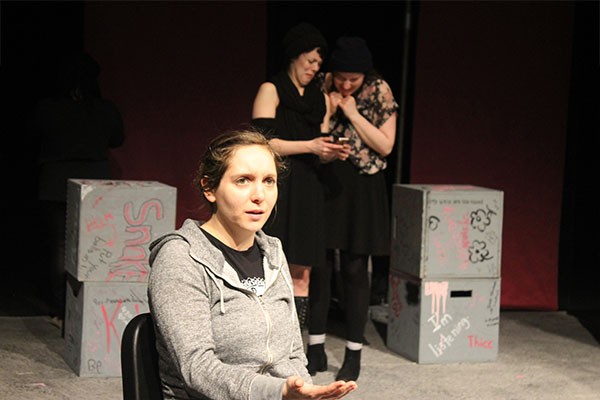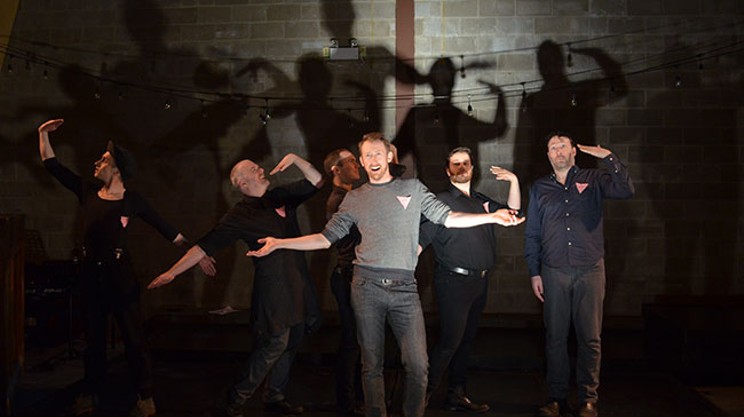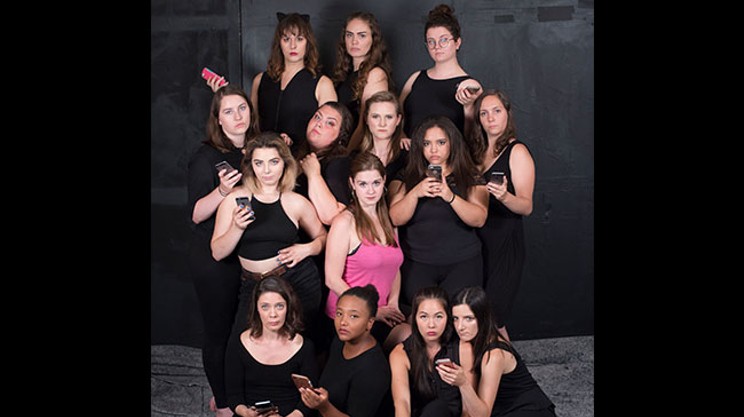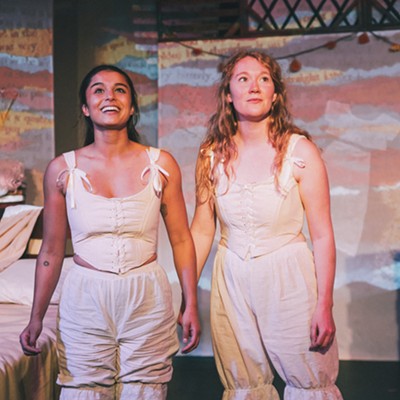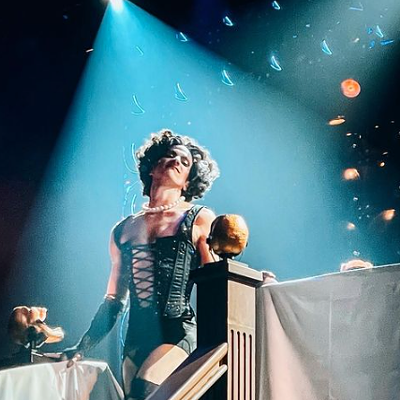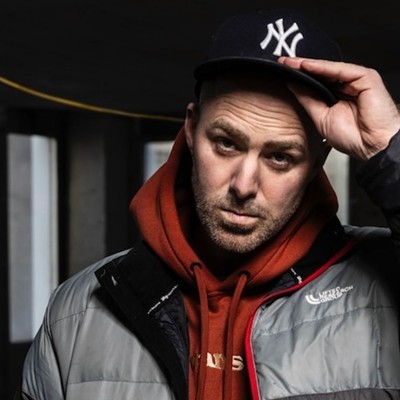SLUT: The Play
Monday, May 28, 2pm & 7:30pm
Neptune Theatre Scotiabank Stage
$20 (Stages passes $20-$43)
neptunetheatre.com
Written by Katie Cappiello, the original production debuted at the New York Fringe Festival in 2013 and in the five years since has been performed all over the world, including last summer at the Sir James Dunn Theatre by LunaSea Theatre Company. A two-show remount is on May 28 as part of Eastern Front’s Stages Theatre Festival.
“When I was brought on at LunaSea and was working with Mary-Colin [Chisholm] and Martha [Irving], we’d been talking about doing a production with young professional actors,” says Ryanne Chisholm, who directed a run of the show in 2015 and has been developing it since. “LunaSea’s mandate is to support women’s voices and professional development,” she adds, outlining the process of casting 11 diverse young women, which began in 2017. “We knew the long-term goal was to try to take the show around the province, despite the size of the cast and subject matter,” says Chisholm. “Representation was very important to us, that it wasn’t 11 white cisgender women. With 11 parts, there’s really no excuse.
“Within that idea of diversity we also had large discussions with our cast with where each young woman was placed,” she adds. “If a woman is representative of a certain type of diversity, what does it mean for her to play this role? Audiences aren’t blind.”
SLUT is entertaining and well-written, but it’s also a tough watch—particularly when Joey recites the details of the assault, and when her friends aren’t sure to believe her. Even though it was written years before #MeToo, it feels like it could’ve fallen out of Capiello’s brain a month ago.
“Our experience at Dramafest last week was powerful—that performance was for 200 to 300 students. They jumped to their feet before the blackout was even complete. I’ve never seen that,” says Chisholm, also an educator who wants to get the show into Nova Scotia schools. “The material isn’t as difficult for them as it is for us grownups. Seeing parts of themselves on stage is so much more important than realizing some of the subject matter is difficult.”
Part of the goal with the Dramafest production, as well as this one, is to get educators out to see it and support bringing it to their high schools. “We thought the biggest barrier would be the title,” says Chisholm, “but actually what it is is the swearing in the script. It’s very difficult for it to be greenlit to get into schools….Once someone has seen the show, the doors tend to open.”
Regardless of age or profession, Chisholm encourages everyone to see this week’s production—“young men and young women and the people who care about them”—because it offers a way into often knotty, awkward, intense conversations about consent and sexual assault.
“This issue touches so many corners of our life and it’s an issue we need to talk about,” she says. “The only thing we know how to do right now is educate people to be more conscientious bystanders. The thing that SLUT: The Play can do is give this launching-off point for these conversations.”

